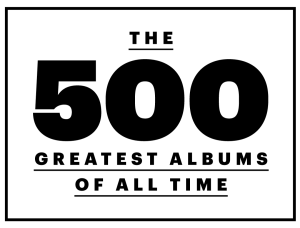
When we first published the 500 Greatest Albums of All Time in December 2003, Amy Winehouse was still three years from releasing Back to Black, and Kendrick Lamar’s good kid, m.A.A.d city, was almost a decade away; many of today’s top musicians (and fans) weren’t in middle school yet. While the original list has taken on a massive life of its own, with almost 63 million people reading it on our site last year (not to mention Facebook groups dedicated to debating it and fan-built pages lobbying for missing artists, such as the one called, “We want GENESIS listed on Rolling Stone500 Greatest Albums”), now — 20 years into the 21st century — seems like the right time to re-evaluate.
The goal wasn’t to update the list but blow it up and re-create it from scratch, reflecting both the canon of pop music and the ever-shifting currents of taste. We fielded more than 300 ballots from musicians, producers, journalists, and execs. Everyone from Beyoncé and Lin-Manuel Miranda to Taylor Swift and Brittany Howard voted.
The 500 Greatest Albums of All Time List
The results speak for themselves: 154 albums are new to the 500, and 86 albums from the 21st Century made the list. The new 500 is less rock-centric. Hip-hop’s legacy and continued vitality stands out (with three times as many rap albums represented on the new list as on the original), as does the interwoven lineages of soul music: Prince has two albums in the Top 50; The Miseducation of Lauryn Hill jumped from 312 to 10; and Marvin Gaye’s What’s Going On (an album for these times if there ever was one) beat out the Beatles’ Sgt. Pepper’s Lonely Hearts Club Band to take over the Number One spot.
“One distinction from the old list is the idea that there’s not one objective history of popular music,” says Rolling Stone’s Reviews Editor, Jon Dolan, who oversaw this yearlong project. “I think it’s an honest reflection of how taste is now.” That comes through in the different styles of music that are totally new to the RS 500: from Latin pop to krautrock, as well as the high number of disco, indie rock, and R&B albums. “It’s not a pure rock-ist perspective,” says Dolan. “It’s more about different histories existing together, a coalition of tastes.”
In creating my own ballot, I went deep on albums that sound vital and exciting now, no matter when they were made or how deeply they are embedded in the canon. I was astonished, listening back to records like Public Enemy’s It Takes a Nation of Millions to Hold Us Back, the Clash’s London Calling, and Lucinda Williams’ Car Wheels on a Gravel Road, at how fresh they sounded, all these years later.
“You should be able to play an album the 101st time and find something new,” Dolan says. “I was shocked listening to The Velvet Underground & Nico. I thought, ‘This really holds up.’ And that’s what’s incredible — to find the music that’s part of a conversation that goes on your whole life.”